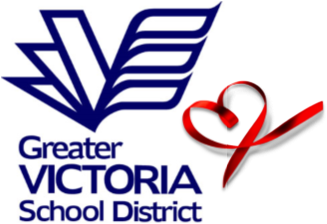|
|
|
| |
| |
|
Middle Introduction - September 2019
|
![Middle Introduction - September 2019]() |
|
|
|
|
|
|
|
 | As a parent in the Greater Victoria School District you will be receiving a monthly "Snapshot” that includes information and resources that pertain to your middle school child. Our secondary school students, staff, and families receive a more detailed version that is appropriate for that age and developmental stage.
The purpose of the middle school Snapshot is to support students and families with pro-active information and potential resources as your child prepares for the transition to high school. Last school year our focus was on substance use, however for the 2019-2020 school year we are expanding to include a wider range of mental health and wellness topics.
|
|
|
Although these topics do not directly address substance use we view them as an opportunity to dialogue with your child which acts as a protective factor that will support them to make positive decisions about their physical and mental well-being. Therefore we invite you to consider any part of these snapshots as speaking points with your child as you see appropriate.
|
|
|
|
|
|
|
|
|
ELEMENTARY Additional Counsellors in schools (.5 or more)
Snapshots 3 times a year for staff and parents
Support for Social Emotional Learning Programs (Second Step and Taxi Dog)
Youth & Family Counsellor and access to Discovery Addiction Counsellors at all schools
Social Emotional Wellness Advocates
|
MIDDLE Mental Health Literacy Program for all Grade 8 students
Monthly Snapshots for Grade 8 students, staff and parents
Physical Literacy for grade 6 & 7 students
Youth & Family Counsellor and access to Discovery Addiction Counsellors at all schools
Social Emotional Wellness Advocates
|
SECONDARY Odd Squad videos and resource material on Fentanyl.
Monthly Snapshots for all students, staff and parents
Youth & Family Counsellor and access to Discovery Addiction Counsellors at all schools
Social Emotional Wellness Advocates
|
|
|
|
|
|
EDUCATE YOURSELF so you can answer questions. If you don’t know the answers, offer to look for them together.
BE A GOOD LISTENER. Give your kids room to participate and ask questions. Respect their opinion.
|
STICK TO THE FACTS. Avoid preaching, scare tactics and exaggeration, which may lead to loss of trust.
LOOK FOR NATURAL OPPORTUNITIES to discuss decision-making through news stories and social media.
|
BE OPEN AND RESPECTFUL. Ask questions about what your child is hearing, seeing, or learning in regards to substance use, mental health and wellness.
FOCUS ON YOUR HEARTFELT CONCERNS for their safety and wellbeing (rather than right/wrong, good/bad, obey/punish).
|
| |
|
|
|
Research demonstrates that supportive relationships with their parents and other trusted adults (teachers, family members, and other professionals such as counsellors) are a *protective factor for youth..
*Protective factors are conditions or attributes (skills, strengths, resources, supports or coping strategies) in individuals, families, communities or the larger society that help people deal more effectively with stressful events and mitigate or eliminate risk in families and communities.
|
|
|
|
|
|
|
|
|
 |
The Greater Victoria School District is committed to providing safe and healthy learning environments for all students. As part of our approach, we have been focusing on mental health and substance use topics to help us promote well-being in our schools.
Substance use is a complex topic that often highlights varied philosophies, myths, and a great deal of fear. The research shows us that early interventions, particularly around critical thinking and decision making, has an impact on delaying use in youth. As well, open dialogue with adults, intentionality around attachment, and a focus on the factors that contribute to substance use, as opposed to the actual substances, also prevent, delay and reduce substance use in our students.
Our goal is to create a more cohesive,
systematized substance use plan focusing on social emotional learning, that includes our youth and schools, community partners, and families. We strive for a shared vision, common language and consistent messaging over time, in order to support positive youth culture and a healthy perspective on substance use and mental health.
|
|
|
| |
|
|
|
|
|
|
|
|
| |
|